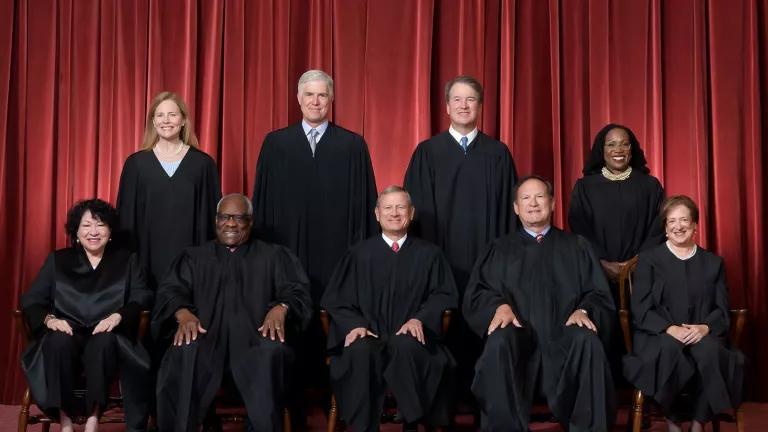Lawsuit Lands Fatal Blow on Pro-Trophy Hunting Council

After a lawsuit by NRDC and partners—represented by Democracy Forward—the Department of the Interior told a federal district court in New York last week that no future meetings of the International Wildlife Conservation Council (IWCC) will take place, bringing an end to the controversial council. “The Council will not meet or conduct any business again, it can no longer be renewed, and there is no plan to establish another committee with a similar mission or scope in the future,” reads the government’s brief. The Trump administration has also allowed the IWCC’s charter to lapse, meaning it can no longer use taxpayer dollars to convene.
As you may recall, former Interior Secretary Zinke created the IWCC in 2017 to advise “on the benefits international hunting has on foreign wildlife and habitat conservation.” To ensure the Council looked only at the benefits of trophy hunting—not its many drawbacks—the administration, in violation of federal law, stacked the IWCC almost exclusively with individuals with a vested interest in making it easier to hunt and kill imperiled species and import their heads, hides, tusks, feet, and other body parts into the United States. By doing this, it excluded the very scientists, economists, and experts in wildlife conservation whose input is crucial if the council is to provide the department with balanced and credible recommendations.
Our lawsuit, filed in August 2018, alleged that the Council violated the Federal Advisory Committee Act (FACA), which requires federal advisory committees to be “well balanced” and “in the public interest.” We alleged that (1) the IWCC’s membership was not “fairly balanced in terms of the points of view represented and the functions to be performed by the advisory committee;” (2) the IWCC was not governed by “appropriate provisions to assure that the advice and recommendations of the advisory committee will not be inappropriately influenced by the appointing authority or by any special interest, but will instead be the result of the advisory committee’s independent judgment;” and (3) the IWCC failed to give timely notice of public meetings or make materials available before or on the date of the meeting.
And things only got worse as the IWCC got going. Council meetings were predominated by presentations on the merits of trophy hunting, to no one’s surprise. And, as Interior conceded in its brief on Friday, the Council secretly offered policy recommendations to Secretary Zinke and withheld those recommendations from the public. Over the course of the IWCC’s existence, evidence also emerged that the government was holding secret meetings (i.e., meetings that were not disclosed to the public) with Council members. Each and every one of these actions is illegal under FACA.
While this is a certain victory, a court ruling is still required to block the Interior Department from relying on the harmful recommendations, reports, and advice produced by the Council over the past three years and five meetings.



